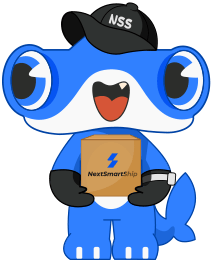Table of Contents
What is freight forwarding?
Freight forwarding is coordinating and shipment of commodities across international borders on behalf of exporters and importers by freight forwarders.
A freight forwarder is a company that provides logistics services for the shipment of goods.
The e-commerce freight market is estimated to grow by $81.78bn by 2023, with the key driver being an increase in cross border e-commerce activities.

What is freight forwarding in logistics?
Moving your goods across borders by water, land, or air is a complex process. Freight forwarding makes it easier to ship commodities, more so bulky goods from one place to another.
Freight forwarders specialize in breaking down the logistics process for shippers with complex management systems making transportation seamless.
Freight forwarding has cut transportation costs and saved time in the supply chain for logistics companies and shippers.
What does a freight forwarding company do?
A freight forwarder is an intermediate between the shipper and the final point of distribution.
They don’t move the goods but arrange transportation services, sea shipping, air freight, and road transport for the cargo.
As an online seller aiming to move bulk goods from the manufacturer to a warehouse for fulfillment, a freight forwarding company can ease your process in many ways.
Some freight forwarders handle these tasks for shippers;
-
-
- Shipping documentation
-
Freight forwarders handle export and bill of lading documentation for your shipments. Getting all the documents needed will ensure all parties involved have the right information from a single source.
-
-
- Warehousing
-
After you get your products from the factory, a freight forwarder can store them for you. It will give you time to look for an optimal third-party provider to do shipping for the merchandise.
-
-
- Booking cargo space
-
Do you need individual shipments for your cargo? The right freight forwarding company can help you with booking cargo space. This way, you get a cost-effective and the fastest option every time.
-
-
- Freight consolidation
-
If your cargo meets less-than-truckload (LTL), a freight forwarder will consolidate all other companies’ merchandise into one full truck and cut down on the cost of an entire carrier.
-
-
- Cargo insurance
-
Insurance claims can be tedious. A freight forwarder can insure your cargo and file for insurance claims in case of any risks on behalf of your company.
-
-
- Freight tracking
-
The right freight forwarding company has the infrastructure and technology to track freights. As an online seller, you can track your cargo under shipment and, in turn, inform your customers on their delivery progress.
-
-
- Negotiating with carriers
-
Freight forwarding companies are often large entities. They serve many shippers hence have negotiating power with carriers. As a shipper, you will get better shipping prices with a freight forwarder.

How to choose a freight forwarding company?
As an online seller, you need a freight forwarder that suits your business model. Factors like delivery time and global network are among your top priority.
Other factors to consider are;
-
-
- Years of experience with freight forwarding
-
Here, global partnerships are essential. Again, these will affect your delivery speed. Large freight forwarding companies work well. You can check small freight forwarders but understand the contract thoroughly before signing.
-
-
- Clear pricing charges
-
Most forwarders will offer custom quotes depending on the volume of cargo, destination, and regulations around the products to be shipped.
You need transparent pricing fees from on-loading to the destination written in the quote before deciding on your freight forwarder choice. A freight forwarder agent can help you understand the fee structure.
-
-
- E-commerce cargo inspection and packaging
-
Does the freight forwarder provide any custom e-commerce solutions? Your merchandise may need inventory inspection to ensure every product is as promised by the manufacturer.
Packaging services are important when building a brand. Custom packages also increase your online sales.
-
-
- Warehouse to door full-service solutions
-
As an e-commerce store owner, you want to focus on growing your business. So, it would be best if you had a freight forwarding provider that does deliveries to the customers’ door.
Third-party logistics (3PL) vs. freight forwarding
The difference between a third-party logistics provider and freight forwarding is very narrow. 3PL can offer a full supply chain and logistics operations to merchants, while freight forwarding offers a broker-type service.
Freight forwarding acts as intermediaries allowing companies to get the best shipping rates from a combination of carriers while third-party logistics providers take over the entire supply chain, including services like warehousing, packing, packaging, and shipping.

What is the freight forwarding process?
Your merchandise is ready for shipping from the manufacturer. Here is the step-by-step process for freight forwarding;
a.Find the right freight forwarding company
A right freight forwarder must at least meet these basic requirements when doing your research. These include; years of experience, country location experience, service offerings, global networks, and documentations.
b.Shipping goods to the freight forwarder
After choosing the right freight forwarder, you need to send your goods to the forwarder’s warehouse. You can use a logistics provider to do this.
c. Documentation
Your freight forwarder will inspect the inventory upon receiving it, then set the required documents for customs clearance. Sometimes custom clearance is completed after your cargo is shipped.
d. Transportation
When your cargo gets transported on carriers, you may be updated on each cargo transit stage, depending on the freight forwarding company you choose.
e. Arrival
Here, the freight forwarder arranges all the Documentation needed to complete the shipping process. From carries bills to custom duties.
f. Importation
The final stage. Your goods can be at their last drop point. Either by your freight provider or the logistics provider. For online sellers, this can be direct to the customer’s doorstep.

Conclusion
As an online seller, you want to focus on growing your eCommerce store. Let the struggle of shipping your goods from the manufacturer to your warehouse or, better yet, directly to the customer’s doorstep, be handled by the best-freighting provider.
Both bulk and single products can be shipped quickly to a location of your choice using international freight forwarding.




